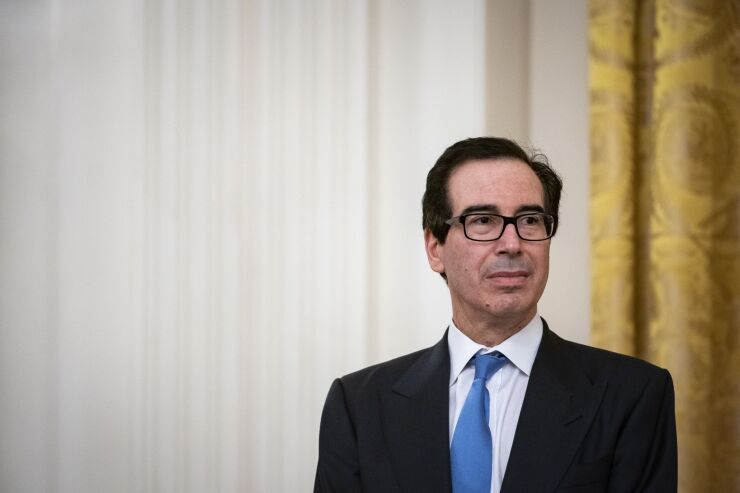The Trump administration said firms that took loans that they didn’t need from a small-business aid program will be allowed to repay the money without legal consequences, reversing an earlier threat that the government could pursue them criminally.
New
The SBA will

Assuming that loans of less than $2 million were taken in good faith will allow the SBA to focus its resources on reviewing larger loans given the massive size of the program, the agencies said.
Last month, after a backlash after large firms swooped in and collected millions from the PPP — which was intended to cast a lifeline to small firms that didn’t have access to capital markets —Treasury Secretary Steven Mnuchin said that firms could face
Meanwhile, borrowers who commit fraud in taking relief loans are already being prosecuted. The Justice Department last week brought the first criminal case related to the program when it charged two New England businessmen with fraud and alleged that their applications falsely claimed employees they don’t have.
The Paycheck Protection Program allows loans of as much as $10 million that can be become grants if proceeds are spent mostly on payroll for two months after they are received. It’s meant to keep workers employed and firms ready to reopen when state stay-at-home orders are lifted.
After organizations such as Shake Shack and the Los Angeles Lakers got loans at the expense of mom-and-pop shops, the SBA and Treasury issued
Companies had been given until May 7, later
The SBA and Treasury haven’t disclosed how many companies have returned or canceled loans and in what amounts. Public companies reported returning 61 loans worth $411 million as of Wednesday morning, according to





